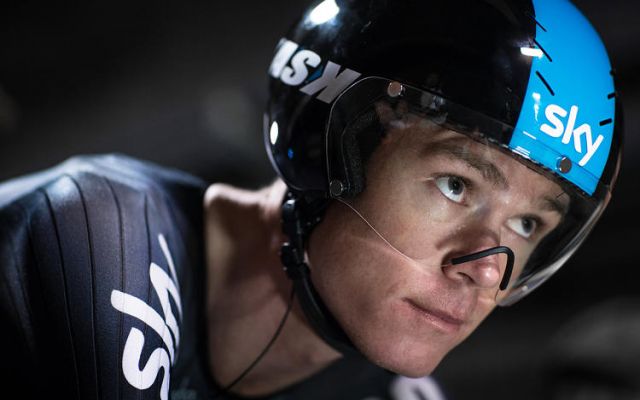Team Sky releases power data on Chris Froome as Tour de France controversy continues
As Chris Froome continues to lead in the Tour de France, Team Sky officials have released a portion of his physiological data in an effort to clear up controversy about his performance—namely, charges that his strength on the Tour's climbs is the product of doping.


As Chris Froome continues to lead in the Tour de France, Team Sky officials have released a portion of his physiological data in an effort to clear up controversy about his performance—namely, charges that his strength on the Tour’s climbs is the product of doping.
The decision to disclose Froome’s information came after a televised appearance on France 2, a French television station, during which Team Sky’s general manager David Brailsford was cornered with a video that perpetuated the controversy surrounding Froome’s success on the Tour. In it, Pierre Sallet, a doctor of physiology, did some math of his own on Froome’s power-to-weight ratio in watts per kilogram, concluding that his Stage 10 climb up La Pierre-Saint-Martin clocked in at 7.04. Above 6 watts per kilogram, a rider’s strength is suspected of being influenced by outside agents, such as doping.
Sallet described the numbers he calculated as “abnormally high.” Brailsford, however, described the physiologist’s conclusions as “wildly wrong.” For that reason, the Sky principal announced, he asked the team’s head of athlete performance to disclose some of that data, hoping to quell the controversy entirely.
“It did take me a bit by surprise,” Brailsford admitted. When France 2 published the video, he argued that it skewed public perception against Froome by evoking Lance Armstrong in images, and also by showing pictures of Jan Ulrich, who was barred from the Tour de France in 2006 and admitted to doping in 2013.
“That was so wildly wrong on so many levels that we thought we should just correct that and give the concrete facts and give the evidence so hopefully people could judge for themselves,” Brailsford said.
Froome, of course, isn’t alone in weathering the skepticism of the cycling world over his success, especially during a Grand Tour. In 2013, Chris Horner was also grilled after that year’s Vuelta a España, before his own data was released for examination. Once reviewed, physiologists found no grounds for suspicion of the American rider’s performance.
In related news, the website Veloclinic.com recently published a post titled “Estimating the Probability of Doping as a Function of Power,” taking a look itself at the hard numbers that may condemn or exonerate a rider’s performance in a Grand Tour. Using assumptions based on its mathematical model, the article concluded that a rider performing at a 6 W/kg level on the usual climb has a 60% probability of being affected by doping. At 6.2 W/kg, that probability rises to 80 per cent; at 7 W/kg, the likelihood of doping reaches 100 per cent.
Froome’s power, Sky’s data read, had been 5.78 W/kg on La Pierre-Saint-Martin.
